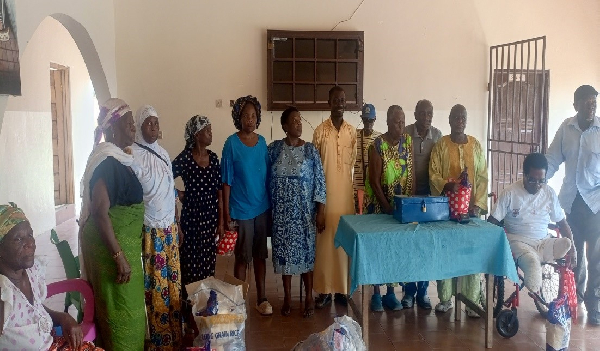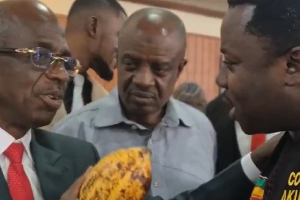A microfinance expert and Executive Secretary of Rural Focus Africa (RUFA), Ishmael Otchere, has indicated that taxes on electronic transactions remain a major drawback to the government’s efforts aimed at roping in marginalised persons and informal businesses into the formal banking bracket to advance financial inclusion.
He said that the controversial E-Levy must be scrapped to enable financial institutions to leverage the power of electronic and other digital payment platforms to mobilize adequate funds to lend to businesses in critical sectors of the economy — that is when the real impact of the digitalization of the financial sector could be realized.
Otchere, whose financial organization works with persons at the very base of the financial ladder through a specialised savings and deposit mobilization scheme known as the ‘Village Savings and Loans Associations (VLSA’s)’, said that the introduction of the E-Levy has been very harmful to both the formal and informal banking sectors.
“The E-Levy and other digital payments charges are major disincentives for informal persons and businesses such as VSLAs to deposit money into their bank accounts through any digital platform. No one would like to pay charges for depositing money into bank accounts,” he said on the sidelines of a donation to members of the Nyame Nti VSLA, which is comprised of cured lepers and inmates of the Weija Leprosarium, in Accra.
According to him, the astronomical growth in Mobile Money transactions and other digital payment platforms have had a slight impact on the economy, while commercial banks need deposits to finance economic activities.
“There is so much money sitting in peoples’ mobile wallets but because of the taxes on digital transactions, they are not able to move these funds to the banks. Abolishing the E-Levy could trigger banks’ deposit mobilisation through digitisation," he said.
He also called for deliberations among regulators and institutions in the banking, fin-tech and telecoms sectors to proffer solutions that will facilitate the linkage of informal groups into the digitalised financial inclusion ecosystem.
The Nyame Nti VSLA, now in its third year and with a membership of up to 32 cured lepers and their families group has mobilized GH¢26,250 from members' weekly savings/shares, GH¢1,344 for social fund, with cash in box amounting to GH¢21,412. The group has also granted about GH¢5,635 in loans to its members.
Although the operations of the VSLA has been digitalised, Otchere argued that the absence of specialized payment systems for such groups, coupled with pain of the E-Levy, has barred several of these informal savings groups from the formal digital payments ecosystem.
He commended the group for their continued interest in the VSLA program. He was happy that the VSLA Program, which was introduced 3 years ago by RUFA and financed by SURRENDER 365 Inc-USA, has provide an opportunity to cured lepers to be included in the financial eco-system.
He also commended the Ghana Lepers Aid Committee for their support to the success of the program.

Watch as Joe Wise outlines two key strategies Minority can employ to be effective
Business News of Wednesday, 15 January 2025
Source: www.ghanaweb.com













